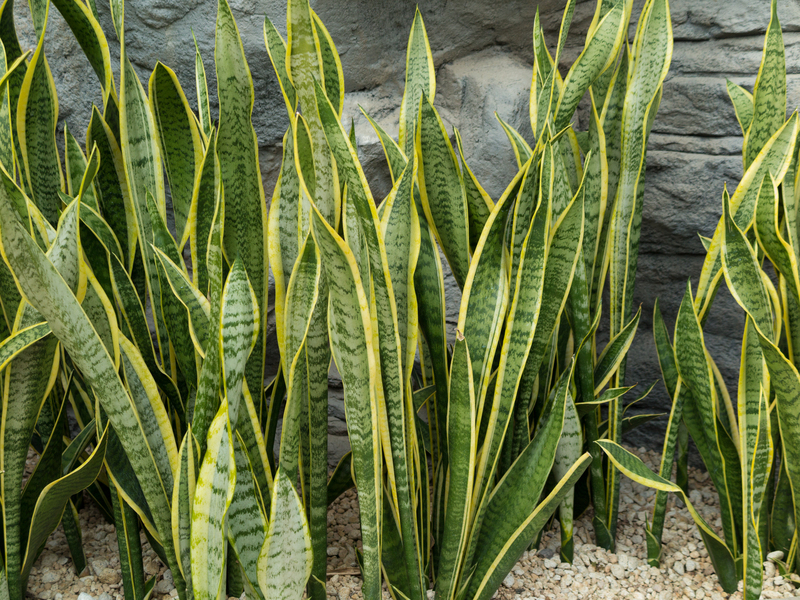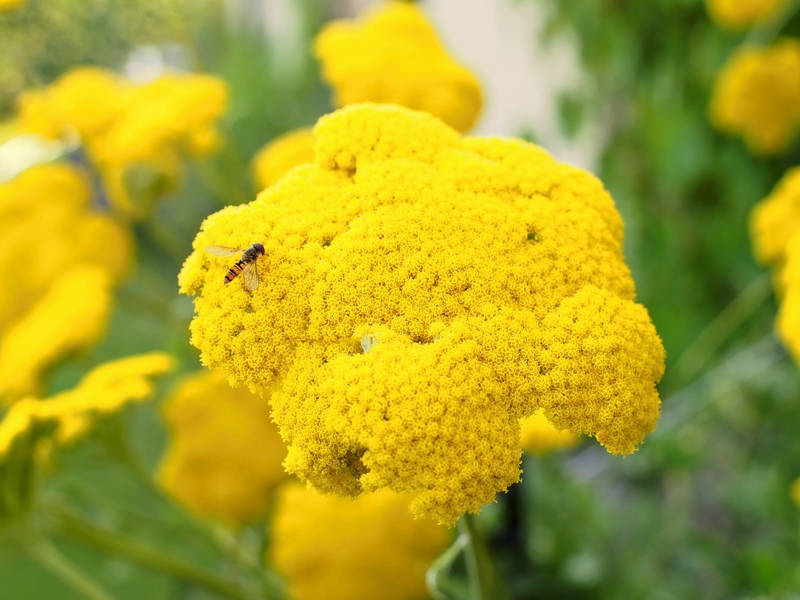Master Your Green Thumb with These 9 Gardening Tips for Beginners
Posted on 24/09/2025
Master Your Green Thumb with These 9 Gardening Tips for Beginners
Are you looking to start your own garden but not sure where to begin? With so many plants, tools, and techniques, gardening may seem overwhelming at first. But growing your own flowers, herbs, or vegetables doesn't have to be complicated! If you're ready to cultivate a lush, thriving garden and master your green thumb, you're in the right place. In this comprehensive guide, we'll break down the top 9 beginner gardening tips--each designed to help you achieve gardening success, even if you've never planted a seed before.
Why Start a Garden? The Joy and Benefits of Gardening
Before diving into our gardening tips for beginners, let's explore the amazing reasons to get your hands dirty and nurture a garden:
- Physical and Mental Health: Gardening is a gentle exercise that reduces stress and anxiety levels.
- Fresh Food at Home: Growing your own vegetables and herbs means tastier, organic produce on your table.
- Eco-Friendly: Gardens support pollinators and local wildlife while reducing your carbon footprint.
- Creativity and Personalization: Design your space and watch your living masterpiece come to life!
- Connection: Gardening brings families, friends, and communities closer together.
Ready to unleash your green thumb? Let's dive into our essential tips!

1. Start with the Right Location
The key to a thriving garden is choosing the perfect spot. Follow these guidelines to set yourself up for gardening success:
- Pick a location that receives at least 6-8 hours of sunlight daily (most edibles and flowers need this).
- Avoid low-lying spots where water pools after rain--too much moisture leads to root rot.
- Make sure your garden is easily accessible for regular maintenance.
Pro Tip: If yard space is limited, try container gardening on a sunny balcony, patio, or even a windowsill!
Observing Sun and Shade Patterns
Watch your intended garden space throughout the day to see how much sun it truly receives. Different plants have different sun requirements. Note which sections are shaded by trees, buildings, or fences.
2. Select the Best Plants for Beginners
For new gardeners, it's crucial to start with plants that are easy to grow and maintain. Here are some top beginner-friendly plants:
- Herbs: Basil, mint, chives, parsley, and oregano
- Vegetables: Lettuce, cherry tomatoes, radishes, zucchini, and green beans
- Flowers: Marigolds, zinnias, sunflowers, pansies, and petunias
Stay local! Visit a nursery or ask gardening neighbors for advice on what thrives in your area.
3. Get to Know Your Soil
Healthy plants begin with healthy soil. Understanding your soil's type and quality is one of the most important beginner gardening tips:
- Dig a small hole and feel the soil. Is it clay (sticky), sandy (gritty), or loamy (crumbly)?
- Test your soil's pH using a simple home soil test kit--they're widely available and easy to use.
- Enrich your soil with compost or well-rotted manure to provide nutrients and improve structure.
Tip: If the ground quality is poor, use raised beds or large planters with bagged garden soil for a fast start.
4. Plan Before You Plant
A little planning prevents big headaches! Before rushing to the nursery, take some time to:
- Draw a simple sketch of your future garden.
- Group plants by similar needs, such as sunlight, water, and spacing.
- Stagger planting times for a continuous harvest if you're growing edibles.
Understanding Plant Spacing
Overcrowding is a common mistake for gardening newbies. Always follow spacing recommendations found on seed packets or plant labels. Giving roots and leaves enough room prevents disease and encourages healthy growth.
5. Water Wisely
One of the golden rules for beginner gardeners is not to overwater or underwater your plants:
- Water in the early morning or evening to reduce evaporation.
- Stick your finger into the soil--if it's dry an inch below the surface, it's time to water.
- Water at the base of plants to keep leaves dry and reduce disease risk.
- Use mulch (like straw, wood chips, or bark) to retain moisture and protect roots.
Tip: Buy a soaker hose or drip irrigation for efficient watering, especially if you travel often.
6. Feed Your Plants Properly
Along with water and sunlight, plants need nutrients to flourish. Here's how to feed your garden:
- Start with soil rich in organic matter and compost.
- Use slow-release fertilizers, following the instructions carefully (don't over-fertilize!).
- For food gardens, try an organic vegetable garden fertilizer for best results.
The Role of Organic Matter
Compost is a gardener's best friend. It improves soil texture, feeds beneficial microbes, and slowly releases nutrients--no harsh chemicals needed!
7. Keep an Eye on Pests and Diseases
Pests and plant diseases are bound to show up eventually, but regular checks help you catch problems early. Here's how to keep things under control:
- Inspect plants for holes, spots, or sticky residue weekly.
- Remove slugs and caterpillars by hand (wear gloves).
- Encourage beneficial insects like ladybugs and lacewings.
- If you must use controls, try organic options like insecticidal soap or neem oil first.
Pro Tip: Healthy, well-spaced plants are less likely to succumb to pests and disease!
8. Regular Maintenance is Key
Gardening is about sustained effort. Set aside a little time each week to:
- Weed your beds so your plants don't have to compete for nutrients.
- Deadhead spent flowers to encourage more blooms.
- Check for signs of over- or under-watering.
- Tidy up debris to prevent hiding spots for pests.
Tip: Invest in a sturdy pair of gloves, sharp pruners, a trowel, and a watering can--these are the core gardening tools every beginner needs.
9. Keep Learning and Have Fun!
Every gardener--even the pros--experiences trial, error, and "learning moments." Here's how to enjoy your gardening journey:
- Document your progress with photos or a simple garden journal.
- Join local garden clubs, online forums, or social media groups for support and advice.
- Experiment with new plants and techniques every season.
- Cherish the process--gardening is as much about personal growth as it is about plants!
Don't be afraid to make mistakes--every seed you plant is a step closer to mastering your green thumb.

Gardening for Beginners: Frequently Asked Questions
Which gardening tools do I need as a beginner?
Stick with the basics: a hand trowel, sturdy gloves, pruners, a watering can or hose, and a weeder. As you gain experience, you can add more specialized tools.
How do I keep my garden eco-friendly?
- Use organic compost and natural fertilizers.
- Choose native plants that support pollinators.
- Mulch to reduce water waste.
- Encourage beneficial insects instead of spraying chemicals.
When is the best time of year to start a garden?
For most climates, spring is ideal for starting your garden outdoors. However, certain hardy crops like spinach and peas can be planted in early spring or fall. Check your local planting calendar (by searching your USDA hardiness zone or consulting with your local extension office).
Conclusion: Unlock Your Gardening Potential
There has never been a better time to start cultivating your own natural sanctuary! Whether you're dreaming of vibrant flower beds, flavorsome edible plots, or lush container gardens, these 9 essential gardening tips will help you master your green thumb in no time.
- Choose the right location
- Pick beginner-friendly plants
- Test and amend your soil
- Plan your space and plant thoughtfully
- Water correctly and mulch
- Feed your plants with quality compost
- Monitor and manage pests naturally
- Stay consistent with maintenance tasks
- Stay curious and keep growing!
Don't underestimate the joy and satisfaction that comes from nurturing life and beauty from the soil up. With these gardening tips for beginners, your journey to a flourishing, beautiful garden begins today. Grab your gloves, dig in, and watch your green thumb bloom!
Happy gardening!
Latest Posts
Discover 5 Budget-Friendly Low Maintenance Garden Ideas
Master Your Green Thumb with These 9 Gardening Tips for Beginners
Design a Zen Garden for Tranquility and Peace in Your Outdoor Space

